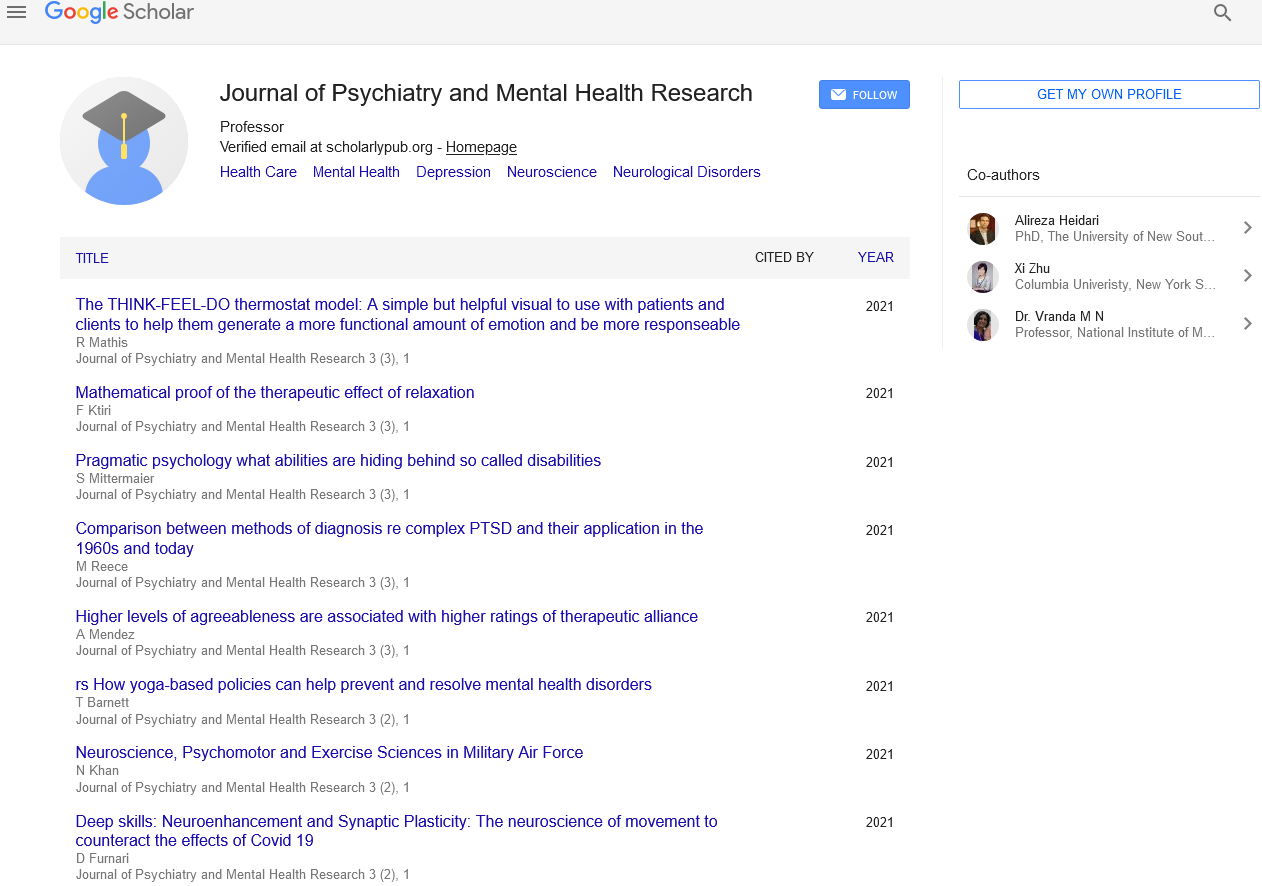Advancements in Pathology: The Role of Technology and Precision Medicine in Modern Diagnostics
Received: 09-Apr-2024, Manuscript No. pulpmhr-25-7382; Editor assigned: 12-Apr-2024, Pre QC No. pulpmhr-25-7382 (PQ); Accepted Date: Apr 29, 2024; Reviewed: 15-Apr-2024 QC No. pulpmhr-25-7382 (QC); Revised: 26-Apr-2024, Manuscript No. pulpmhr-25-7382 (R); Published: 30-Apr-2024
This open-access article is distributed under the terms of the Creative Commons Attribution Non-Commercial License (CC BY-NC) (http://creativecommons.org/licenses/by-nc/4.0/), which permits reuse, distribution and reproduction of the article, provided that the original work is properly cited and the reuse is restricted to noncommercial purposes. For commercial reuse, contact reprints@pulsus.com
Abstract
Etiology, the study of the cause or origin of diseases, is a critical area of medical research that helps to uncover the factors responsible for the onset of health conditions. This article explores the various aspects of etiology, including genetic, environmental, and infectious factors that contribute to the development of diseases. Through an in-depth analysis of common diseases and their etiologies, we examine how understanding disease origins is essential for diagnosis, prevention, and treatment. Additionally, we discuss the evolving role of molecular biology and advancements in research methods that are improving our understanding of disease causation. This article emphasizes the importance of etiological research in the development of targeted therapies and preventive measures.
Key Words
Etiology; Disease causation; Genetic factors; Environmental factors; Infectious diseases; Molecular biology; Disease prevention; Targeted therapies
Introduction
Pathology, the branch of medicine that deals with the causes and effects of diseases, has traditionally relied on histological and cytological examination of tissue samples under a microscope. However, in recent years, there has been a dramatic shift in the field with the introduction of cutting-edge technologies that enhance the accuracy, efficiency, and accessibility of diagnoses. These advancements are transforming how pathologists detect and monitor diseases, ultimately leading to improved patient care.
Digital pathology has revolutionized the way pathologists interact with diagnostic samples. Using high-resolution scanning systems, tissue slides are digitized and viewed on computer screens, allowing pathologists to analyze them remotely and collaborate with other experts globally. This shift towards digital imaging also facilitates the integration of AI algorithms to assist in detecting patterns and anomalies in tissue samples, increasing diagnostic accuracy and reducing human error. AI has emerged as a powerful tool in pathology by enhancing image analysis and providing insights that were previously beyond human capabilities. AI algorithms can detect minute changes in tissue structure and identify cancerous cells with exceptional precision. Tools can also be trained to predict disease progression, assisting clinicians in making more informed decisions. Moreover, AI integration reduces the workload of pathologists, allowing them to focus on complex cases. NGS technology has had a profound impact on molecular pathology, enabling the analysis of genetic mutations at an unprecedented scale. By sequencing DNA and RNA from patient samples, NGS provides valuable insights into genetic alterations that drive diseases like cancer, allowing for more targeted and personalized therapies. This has paved the way for precision medicine, where treatments are tailored based on the individual genetic profile of patients. Precision medicine is one of the most significant trends in modern healthcare, aiming to customize medical treatments based on the genetic, environmental, and lifestyle factors of each patient. Pathology plays a central role in this paradigm by providing detailed molecular data that can guide treatment decisions. For example, genetic testing in oncology allows clinicians to identify the most effective chemotherapy drugs or immunotherapies based on the specific mutations present in a patient's tumor.
Challenges and Opportunities
While technological advancements offer numerous benefits, there are challenges that need to be addressed. The integration of digital pathology and AI requires significant investment in infrastructure and training. Additionally, ethical concerns related to the use of AI in diagnostics, such as data privacy and algorithmic biases, need to be carefully considered. There is also a need for standardization and validation of AI tools before they can be widely adopted in clinical practice.
However, these challenges also present opportunities for further innovation. As technology continues to evolve, new tools and methods for data analysis, disease detection, and treatment personalization will likely emerge. Collaborative efforts between researchers, clinicians, and technology developers will be key to addressing existing barriers and maximizing the potential of these advancements.
Conclusion
The field of pathology has undergone a significant transformation, thanks to technological advancements such as digital pathology, artificial intelligence, and next-generation sequencing. These innovations are enhancing the accuracy, efficiency, and precision of diagnoses, leading to better patient outcomes through personalized medicine. While there are challenges to overcome, the future of pathology is undoubtedly promising, with the potential for further advancements in diagnostic tools and therapeutic strategies. As these technologies continue to evolve, they will play an increasingly vital role in the delivery of high-quality healthcare, making the field of pathology central to the future of medicine.





